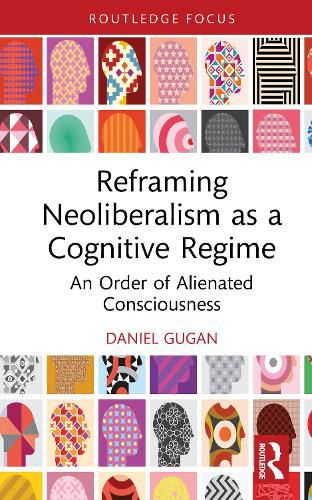Readings Newsletter
Become a Readings Member to make your shopping experience even easier.
Sign in or sign up for free!
You’re not far away from qualifying for FREE standard shipping within Australia
You’ve qualified for FREE standard shipping within Australia
The cart is loading…






This volume provides a new exploration of the complex phenomenon of neoliberalism from a unique perspective, casting it as our contemporary 'collective consciousness' and arguing for its interpretation not as a political ideology, but as multifaceted cognitive system.
It maps out the formation processes and structural buildup of these systems, by elaborating first on a certain model of individual cognition, then scaling it up to the societal level. This collective cognitive model then provides the foundation for in-depth analysis of "cognitive regimes", which are understood as the different examples of culturally defined and externally structured collective consciousnesses. Several attributes and their different dynamics are explored and organized into a general framework, such that a new and comprehensive understanding of the subject can be extracted. It offers valuable analysis of what this "cognitivist" approach to neoliberalism can provide for re-imagining our future in a world struggling with ecologic, economic, demographic, and climatic degradation, and what lessons can be learned for an era overshadowed by a potential climatic collapse.
Academics interested in the expansion of the "critique of neoliberalism" discourse to the socio-cognitive field, looking for some novelties in the well-established academic literature around this subject would greatly benefit from this text. With its clear and concise format, it is also of interest to motivated readers from outside academia.
$9.00 standard shipping within Australia
FREE standard shipping within Australia for orders over $100.00
Express & International shipping calculated at checkout
This volume provides a new exploration of the complex phenomenon of neoliberalism from a unique perspective, casting it as our contemporary 'collective consciousness' and arguing for its interpretation not as a political ideology, but as multifaceted cognitive system.
It maps out the formation processes and structural buildup of these systems, by elaborating first on a certain model of individual cognition, then scaling it up to the societal level. This collective cognitive model then provides the foundation for in-depth analysis of "cognitive regimes", which are understood as the different examples of culturally defined and externally structured collective consciousnesses. Several attributes and their different dynamics are explored and organized into a general framework, such that a new and comprehensive understanding of the subject can be extracted. It offers valuable analysis of what this "cognitivist" approach to neoliberalism can provide for re-imagining our future in a world struggling with ecologic, economic, demographic, and climatic degradation, and what lessons can be learned for an era overshadowed by a potential climatic collapse.
Academics interested in the expansion of the "critique of neoliberalism" discourse to the socio-cognitive field, looking for some novelties in the well-established academic literature around this subject would greatly benefit from this text. With its clear and concise format, it is also of interest to motivated readers from outside academia.